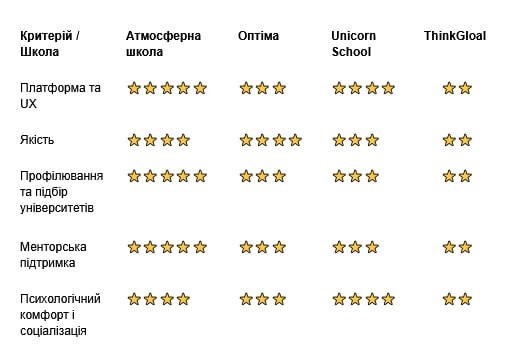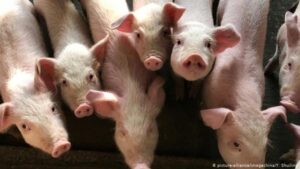
The Ukrainian cement market has stabilized after sharp fluctuations in 2021–2023, but production volumes remain almost half of what they were before the war. This is stated in an analysis by Experts Club, prepared in collaboration with the Ukrcement association.
In 2021, cement production reached 11 million tons, fell to 5.4 million tons in 2022, recovered to 7.43 million tons in 2023, and to 7.93 million tons in 2024. According to manufacturers’ estimates, the “ceiling” in 2025 will be around 8 million tons.
Consumption: 10.6 million tons in 2021, 4.5 million tons in 2022, 6.2 million tons in 2023, and 6.3 million tons in 2024. Thus, the market has stabilized at 6–6.5 million tons, which is about half of pre-war demand.
The structure of demand has changed: instead of residential and commercial construction, infrastructure and defense projects dominate — fortifications, shelters, urgent repairs of roads and bridges. Demand is additionally supported by state programs, including “єОселя.”
In 2025, experts expect stable “military” demand to continue, sensitive to budget financing and donor assistance.
Experts Club is a Ukrainian analytical center specializing in research on economics, energy, macroeconomics, infrastructure, and export-import relations.
A condensed version of the Experts Club’s cement market study is available at https://expertsclub.eu/rynok-czementu-ukrayiny-doslidzhennya-experts-club/
The Ukrcement Association brings together Ukraine’s leading cement producers.

The Experts Club Information and Analysis Center presents a selection of significant discoveries in the field of astronomy and space over the past week. The collection includes significant global sources.
Mysterious object 3I/ATLAS approaches Mars
3I/ATLAS, the third known interstellar object to enter the Solar System, was discovered on July 1, 2025, by the ATLAS telescope in Chile. The orbit of 3I/ATLAS is hyperbolic — the object is not bound by the Sun’s gravity and will not revolve around it, but will only pass through the Solar System. According to calculations, on October 3, 2025, it will pass at a distance of approximately 0.19 astronomical units (≈ 28 million km) from Mars.
In the scientific article “3I/ATLAS (C/2025 N1): Direct Spacecraft Exploration of a Possible Relic of Planetary Formation at ‘Cosmic Noon’,” the authors discuss that at the moment of passing inside the orbit of Mars, the comet may be observable from aboard Martian spacecraft.
In addition, there is a high probability that the JUICE probe (ESA mission to Jupiter’s moons) will also detect 3I/ATLAS in November 2025. Recent estimates of the mass of this object place it higher than previous estimates — it may be more massive than previously thought.
Localization of the brightest FRB (Fast Radio Burst)
An international team of astronomers has been able to pinpoint the source of the brightest FRB signal ever recorded and link it to a specific galaxy.
This achievement helps to better understand the nature of these powerful radio pulses and their possible connection to neutron stars or magnetars.
New theory of Type Ia supernovae
An article in The Astrophysical Journal proposes a mechanism whereby some Type Ia supernovae may be triggered by primary black holes without companions.
This could affect the use of these explosions as “standard candles” in cosmology.
New data from Trace Gas Orbiter about Mars
Analysis of images and spectra from the ExoMars/Trace Gas Orbiter mission has shown that Recurring Slope Lineae on Mars can form without the involvement of liquid water — probably due to dust avalanches. The discovery of oxide and seasonal ozone layers in the Martian atmosphere has also been noted.
Discovery of a potential new satellite of Uranus
The James Webb Space Telescope (JWST) has discovered a potential new satellite of Uranus, provisionally named S/2025 U1, with a diameter of about 10 km, located outside the planet’s ring system.

We compare the quality of education, methodology, platform, support and support for the child to help parents make an informed choice.
The Experts Club analytical center has conducted a study and compared the leading online schools in Ukraine according to the most important criteria – from the quality of education to the level of socialization – to show their strengths and differences.
Choosing a school is always about the child’s future. And more and more often, parents are choosing a laptop and their own pace of learning rather than desks and bells. Online education in Ukraine is no longer a forced step – it is now a conscious choice to learn in a new way: with interactive platforms, mentor support, and live meetings, even if children study from different cities or countries.
To help you navigate, we have analyzed the most popular online schools in Ukraine by key criteria:

Average score:
Details of the criteria
Platform and UX
Quality of education: lesson structure and methodology
Profiling and selection of universities
Mentoring support
Psychological comfort and socialization

Conclusion
Online education in Ukraine is developing rapidly, offering parents and children formats ranging from classic programs to innovative models with international diplomas.
Atmospheric School maintains its leadership thanks to its modern platform, flexible methodologies, well-thought-out profiling, and strong mentoring support.
Each school has its own strengths: some offer STEM programs, others offer international certifications or creative communities. Our ranking will help you choose a school where learning will be both effective and comfortable.
https://expertsclub.eu/yak-obraty-onlajn-shkolu-dlya-dytyny-rejtyng-5-najpopulyarnishyh-variantiv/
atmospheric_school, EXPERTS_CLUB, online_education, online_school, quality_education, school_selection

Over the past three decades, pig farming has remained one of the most important components of global agricultural production. It has played a key role in providing the population with animal protein, shaping export flows in Asia and Europe, while remaining vulnerable to global epidemiological risks. Experts Club analysts have studied changes in the global pig population between 1990 and 2023.
“Pig farming is an industry where economics is closely intertwined with biological risks. It is extremely profitable in stable conditions, but it instantly suffers from any disruptions in the veterinary or logistics chain,” said Maxim Urakin, PhD in Economics and founder of the Experts Club information and analytical center.
In the early 1990s, the total number of pigs in the world grew steadily, especially in China, which became the largest producer and consumer of pork. Mass industrial production, urbanization, and high demand for meat in the Asia-Pacific region stimulated capacity expansion. By the mid-2010s, the industry was at its peak: in some years, the number of pigs in the world exceeded one billion. This dynamic reflected the successful commercialization of the industry in China, Vietnam, Brazil, the United States, Germany, and Spain.
However, after 2018, the global pig industry faced one of the most significant challenges in recent decades — the African swine fever (ASF) pandemic. The epizootic, which began in China, spread to dozens of countries and led to a massive reduction in livestock numbers. In China alone, it is estimated that more than 100 million pigs were destroyed. This caused a meat shortage in the global market, price increases, a crisis in feed chains, and a reorientation of international trade.
“After the ASF outbreak, China began to actively reform the structure of pig farming, moving from small farms to large biosecure complexes. This also affected the global market, as demand for safe and controlled meat rose sharply,” Urakin explained.
Europe, in turn, found itself under pressure from environmental legislation and growing animal welfare requirements. In the Netherlands, Denmark, and Germany, the industry declined not only due to disease but also due to political decisions to reduce methane and nitrate emissions. In North America, the situation remained stable, although it was affected by tariff wars, especially in US-China relations.
Today, the global pig industry has partially recovered but remains in a phase of restructuring. China is gradually restoring its livestock population, but on new principles — with strict control of biosecurity, genetics, and investment in innovation. At the same time, more and more countries are investing in alternative proteins — cultured meat and plant-based pork substitutes — which poses long-term risks to the traditional industry.
“The future of pig farming is a symbiosis of biotechnology, sustainable management, and veterinary reliability. Those who cannot adapt will lose the market,” concluded Maxim Urakin.
A detailed analysis of the situation on the pork market and a visualization of global trends can be found in a special video review on the Experts Club YouTube channel.
AGRICULTURAL MARKET, ANIMAL HUSBANDRY, EXPERTS_CLUB, PIG FARMING, URAKIN

Karol Nawrocki, candidate from the Law and Justice party, has won the second round of the presidential election in Poland, according to Gazeta Wyborcza.
According to the Polish National Electoral Commission, after 100% of the votes were counted, he received 50.89%.
It is noted that his opponent, Warsaw Mayor Rafal Trzaskowski, received 49.1% of the vote.
A week before the election, Polish Prime Minister Donald Tusk called presidential candidate Nawrocki’s statement that Poland would never support Ukraine’s accession to NATO treason.
Earlier, the Experts Club think tank released a video analysis dedicated to the most important elections in the world in 2025. For more details, see here — https://youtu.be/u1NMbFCCRx0?si=6L76qeuNamxg6py1
ECONOMY, EXPERTS_CLUB, Karol Navrotsky, POLITICS, PRESIDENT OF POLAND, URAKIN

Voting in the presidential election began in Romania at 7:00 a.m. on Sunday. The second round features George Simion, representative of the right-wing Alliance for the Unity of Romanians, and Nicușor Dăncilă, the incumbent mayor of the capital Bucharest, who received the most votes in the first round on May 4.
“We voted so that only Romanians decide our future, for Romanians and for Romania,“ Simion told reporters outside a polling station.
“We decide what kind of country we want to be: a country of hope, dialogue, and development,” Dănălescu wrote on Facebook.
According to Reuters, despite the fact that 38-year-old Simion won 41% of the vote in the first round and 55-year-old Dan only 21%, opinion polls show that they have almost equal chances of winning, or show a slight advantage for Simion. Earlier, the Experts Club think tank released a video analysis dedicated to the most important elections in the world in 2025. For more details, see here —